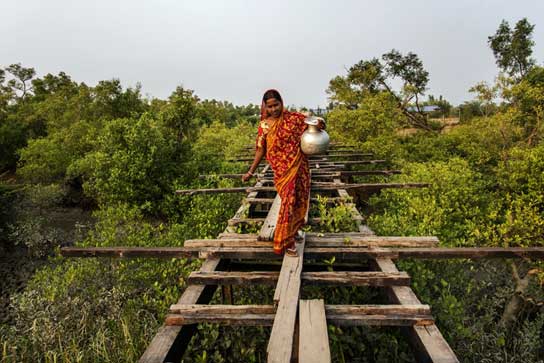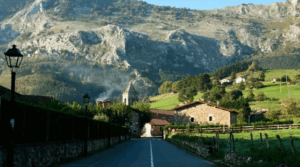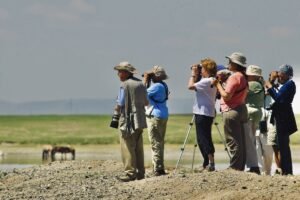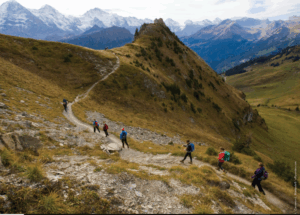2021: The Year that matters for the poorest people on the planet

By Jonathan Farr —
London (IPS) – This year is being described as pivotal for climate change. That’s not only because we’re reaching a point of no return when it comes to the rise in global temperature, it’s because the 26th UN Climate Change Conference of the Parties – commonly known as COP26 – is due to take place in November in Glasgow.
COP26 is widely considered the last chance for governments to combat the global climate catastrophe. In the wake of the pandemic, the summit will offer world leaders the chance to reimagine how their countries can bounce back with greener, sustainable economies.
It’ll also be the first time that signatories of the landmark Paris Agreement all gather together. Adopted by nearly 200 nations in 2015, it legally binds them to hold global temperature rise to below 2C.
Quite rightly, in the lead up to COP26, focus is on tracking the progress signatories have made towards meeting those targets, as there’s no denying that failure to reduce emissions will result in cataclysmic climate impacts.
But on this World Environment Day on June 5, it needs to be highlighted that for millions of people, climate change is not some threat in a far-off future, but a reality they’re facing right now.
Significantly, the Paris Agreement, while heralded as a moment of unity in providing a global game plan to tackle one of the biggest challenges of our time, the playing field for dealing with climate change, isn’t level at all.
It is vulnerable communities in the world’s poorest countries who’ve done the least to contribute to the climate emergency that are the ones living with its severe effects. Take Mozambique, whose CO2 emissions in 2017 were 7.7 million tonnes. But in that same year, the UK released 379 million tonnes of CO2 – 50 times as much.
Yet in 2018, Mozambique’s capital Maputo almost ran out of water following three years of drought. And a year later, the country experienced unprecedented, widespread, and devastating flooding.
Access to clean water is one of the fundamental ways the climate crisis impacts on communities. 2.2 billion people do not have a reliable and safe supply of water, and climate change is making it harder for them to get clean water.
Extreme weather events caused by climate change, such as prolonged droughts, dry up water sources, while rising sea levels and flooding pollute poorly protected water supplies. More people – often women and girls– are having to travel farther for water.
Susmita Mandal Jana, 22 is a housewife, living in the Madhab Nagar area of Sundarbans, West Bengal. A round trip to collect water takes her one hour, and she crosses a rickety bridge over a canal about two to three times a day – while carrying heavy water containers.
Frequent phenomenon in the area are high tides, which can be a consequence of rising sea levels. When they occur, the canal gushes with water, making the walk over the bridge even more perilous. Susmita says: “The water quality is not good either. This water that I collect now is salty.”
Despite the UN climate process, currently, only 5% of total global climate cash is spent helping countries adapt to the changing climate , and that money isn’t even getting through to communities most vulnerable to climate change.
But as it’s communities on the frontlines of climate change, who best know how to respond to its effects, more investment in adaptation is needed.
There are practical solutions which are being piloted to address this. Initiatives, such as the recently launched Resilient Water Accelerator. Led by HRH The Prince of Wales’ Sustainable Markets Initiative, the accelerator will aim to protect 50 million people from climate and health threats with clean water, by ensuring that more finance is fast tracked towards providing communities’ with vital water services.
Other organisations are deeply involved in this area of work such as the UN Development Programme working with the government in Bangladesh and the UK’s Foreign Commonwealth and Development Office to create a disaster management programme and the Dutch government’s programme Water as Leverage for Resilient Cities in Asia.
But with less than 1% of total global climate investment going to basic water infrastructure and services, more needs to be done. COP26 is the moment to change do this, to help people like Susmita cope with the impacts of climate change.
As the hosts of COP26, the UK government must lead the way in pushing for other countries to set more ambitious climate finance goals. WaterAid is calling for the Government to ensure at least one-third of its committed international climate finance goes to locally-led adaptation projects. By pledging this, lives will be saved.
The writer is a Senior Policy Analyst at WaterAid.
5 June 2021
Photo : Women and girls, like Susmita who lives in the Sundarbans, West Bengal, spend an estimated 200 million hours a year walking to fetch water, and climate change is making things even worse. Credit: Wateraid/Ranita














